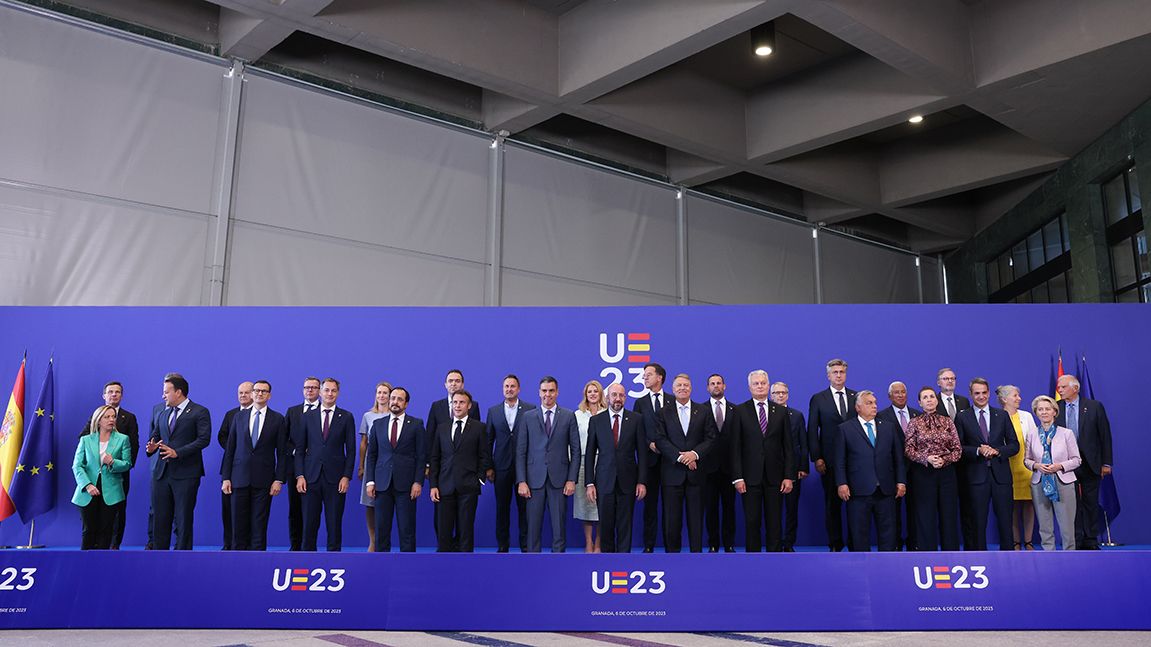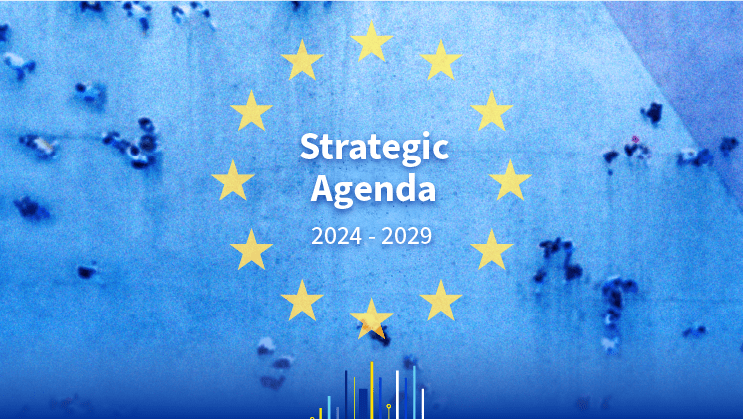As the global political landscape is being reshaped by strategic competition, growing global instability and attempts to undermine the rules-based international order, the EU needs a clear strategic plan and a solid framework for actions.
In the face of unprecedented challenges, ranging from Russia’s war of aggression against Ukraine, the fight against climate change, the situation in the Middle East and mitigating the impact of the COVID-19 pandemic, the EU has emerged stronger and more united. To continue on this path, the EU will address the aspirations of its citizens and strengthen its competitiveness, become the first climate-neutral continent, tackle migration and take the lead in addressing global challenges.
At its meeting in Brussels on 27 June 2024, the European Council agreed on the strategic agenda 2024-2029. It sets the EU’s priorities and its strategic orientations. As such, it will guide the work of the EU institutions.
In the face of a changing global landscape and growing instability, the strategic agenda will make Europe more sovereign and better equipped to deal with immediate and future challenges. It is structured around three pillars:
- a free and democratic Europe
- a strong and secure Europe
- a prosperous and competitive Europe
A free and democratic Europe
Values such as respect for human dignity, freedom, democracy, equality, rule of law and respect for human rights, including the rights of persons belonging to minorities, are the EU’s primary strength, as well as its compass both within the EU and globally.
These values are also the foundation for a stronger, more prosperous and more democratic union for citizens.
To uphold these values within the EU and beyond, the priorities of the European Council within this area include:
- promoting and safeguarding the rule of law
- strengthening democratic resilience and debate
- protecting free and pluralistic media and civil society
- tackling foreign interference and destabilisation attempts
- ensuring that tech giants take responsibility for safeguarding democratic debates online
- upholding the UN Charter and promoting global peace, justice and stability
- working towards a reformed and more inclusive multilateral system

EU leaders start debate on the strategic agenda |
A strong and secure Europe
In a world that has become more confrontational, transactional and uncertain, the EU must be able to adapt while also asserting its ambition and role as a strategic global player. Europe must be a place where people are, and feel, free and safe.
In this area, the European Council’s priorities include:
- continued support for Ukraine, including its reconstruction and the pursuit of a just peace
- a stronger EU defence readiness and capacity and increased defence spending and investment
- cooperation with transatlantic partners and NATO
- the fight against organised crime, radicalisation, terrorism and violent extremism
- strengthening resilience, preparedness, crisis prevention and response capacities to protect citizens and societies against different crises, such as natural disasters and health emergencies
- a merit-based EU enlargement process with incentives, to run in parallel with necessary internal reforms
- a comprehensive approach to migration and border management
A prosperous and competitive Europe
The EU is determined to strengthen its long-term competitiveness and to improve citizens’ economic and social well-being. This includes increasing their purchasing power, creating good jobs, and assuring the quality of good and services. To reinforce Europe’s sovereignty in strategic sectors and make it a technological and industrial powerhouse, the EU’s priorities in this area include:
- a deeper single market, notably for energy, finance and telecommunications
- significant collective investment efforts, mobilising both public and private funding, including through the European Investment Bank and integrated European capital markets
- an ambitious, robust, open and sustainable trade policy
- reduced harmful dependencies, and diversified and secure strategic supply chains
- improved capacity in key future technologies such as artificial intelligence, net-zero technologies and semi-conductors
- the green and digital transitions, including a genuine energy union and investment in game-changing digital technologies in Europe
- a sustainable and resilient agricultural sector
- the promotion of an environment conducive to innovation and business
- strengthened health cooperation at European and international level
- investment in skills, training and education
Path to the strategic agenda 2024-2029
Every five years, EU leaders agree on the EU’s political priorities for the future. This takes place in the context of the European Parliament elections and ahead of the appointment of each European Commission.
The work on the agreed priorities is taken forward by the EU institutions and the member states, and is reflected in the multiannual financial framework, the EU’s long-term budget.
The strategic agenda 2024-2029 was launched at the EU summit in Granada, Spain, in October 2023. In the following months, President Michel led the process of shaping the strategic agenda by working closely with leaders of EU countries in a collective and inclusive manner.
More information: European Council







Leave a Reply